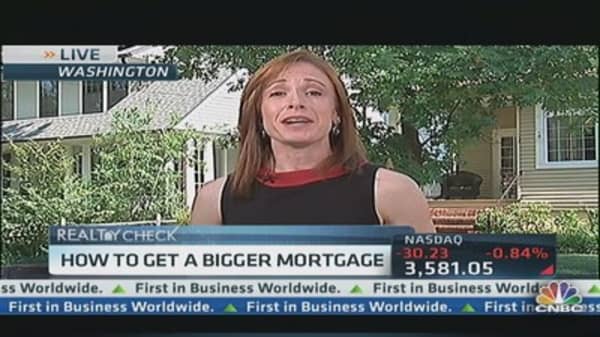"It's about energy efficiency, it's about savings, it's about increasing the borrowing power for the borrower. I think it's a win-win for the industry," said Sen. Johnny Isakson, a co-sponsor of the bill.
The bill instructs lenders with loans backed by Fannie Mae, Freddie Mac and the Federal Housing Administration, (which is about 90 percent of the market) to account for expected energy cost savings.
Those savings must then be factored into how much the borrower can afford in a monthly mortgage payment, so the energy savings are essentially subtracted from a borrowers expenses.
"You would be amazed at how a few dollars can make a difference in a transaction, $50 in a monthly payment, because people calculate their purchase and what to borrow based upon what it's going to cost them per month," argued Isakson.
The bill also tells lenders to add the value of expected energy savings to the value of the home in the appraisal. Since mortgage amounts are based on a percentage of the value of the home, this would allow borrowers to get a bigger mortgage.
(Read more: Housing starts stall, optimism doesn't)
That's where homeowners, like Tamara Lyons in Darnestown, Md., who already have green technology in their homes, will be able to make more money when they sell. The value of green will be in the appraisal.
"A lot of my neighbors feel that it's too much of an initial investment, and they don't want to put that money down," explained Lyons, "But, if they see that it's going to add to the value of their home for resale purposes I think it would definitely make the idea more sexy and more appealing."
The legislation could also benefit companies that are investing heavily in green product development.
"Certainly companies like Dow or Home Depot who have been working on selling and highlighting their energy-efficient products. Insulation manufacturers ... the whole host of manufacturers who make the products that go into the homes that make them more energy efficient," said Stephen Cowell, CEO of Conservation Services Group.
"So we have a host of technologies and this would give manufacturers, builders, retailers and retrofit companies all an opportunity to begin reaching consumers to say 'if you take advantage, if you put these products in, you can increase your home's value' because it's now available to a broader range of homebuyers in the marketplace."




